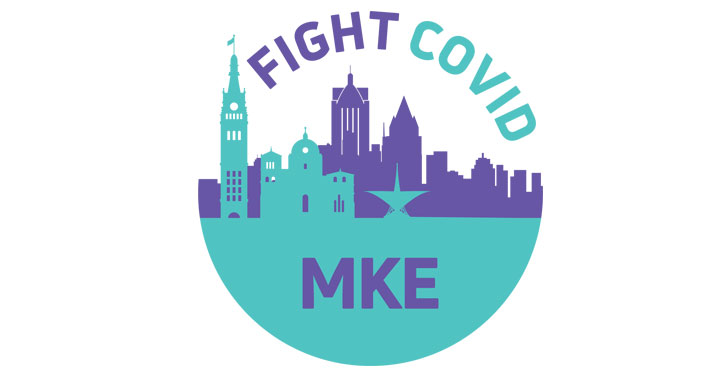
15 Jun FightCOVIDMKE
FightCOVIDMKE is a Medical College of Wisconsin Clinical and Translational Science Institute (CTSI) project funded by a supplemental National Institutes of Health grant that runs from September 2020 – September 2022. The principal investigators are John Meurer, MD, MBA; Reza Shaker, MD, at MCW; and Bernie Black, JD, MS, at Northwestern University. CTSI hired 13 new staff in January to launch the study.
The project recruits adults living in Milwaukee County who are either patients at one of 12 primary care health centers or are enrolled in Wisconsin Medicaid/BadgerCare. Seven Froedtert & MCW clinics are currently recruiting patient participants. Two clinics at Ascension, and Outreach, Progressive, and 16th Street Community Health Centers will begin enrollment expected in June. This summer, we will also recruit through churches and community centers to include adults enrolled in Medicaid/BadgerCare who do not get care at the participating clinics.
With consent, thousands of participants will be compensated to answer survey questions and get COVID antibody tests to assess past infection and response to vaccine. We want to enroll people who had COVID and those who didn’t as well as people who got a COVID vaccine and those who didn’t.
This study is important because it especially engages vulnerable communities that have had an extra burden of suffering from COVID such as people of Black/African American, Hispanic/Latino, or Native American backgrounds. We also want to better understand how challenges like housing problems, food insecurity, and losing a job affect COVID risks and outcomes.
MCW and Northwestern researchers will confidentially analyze antibody test results, surveys, health records, and data from Wisconsin Department of Health Services to answer several questions:
- What percent of adults in MKE have ever been infected by COVID? (The CDC estimates 34 %.)
- How long do COVID antibodies last and protect people from reinfection? (Studies suggest at least 6-12 months.)
- What factors affect the risk of severe illness and death from COVID infection? (Older age, people of color, chronic conditions, and housing and food insecurity are associated with higher risk. However, little is known how combined factors influence risk of hospitalization and death. Moreover, we are learning how to best communicate this risk, and benefits of vaccine to diverse audiences.
- After COVID vaccination, do adults get infected with new variants? (Time will tell. Our study will continue through late 2022.)
For more information, go to https://fightcovidmilwaukee.org/ to find out if you are eligible for the study.





